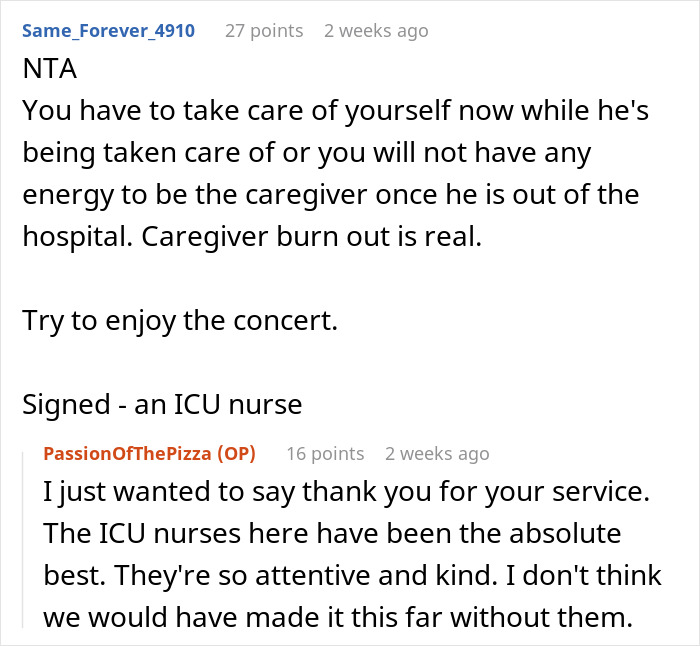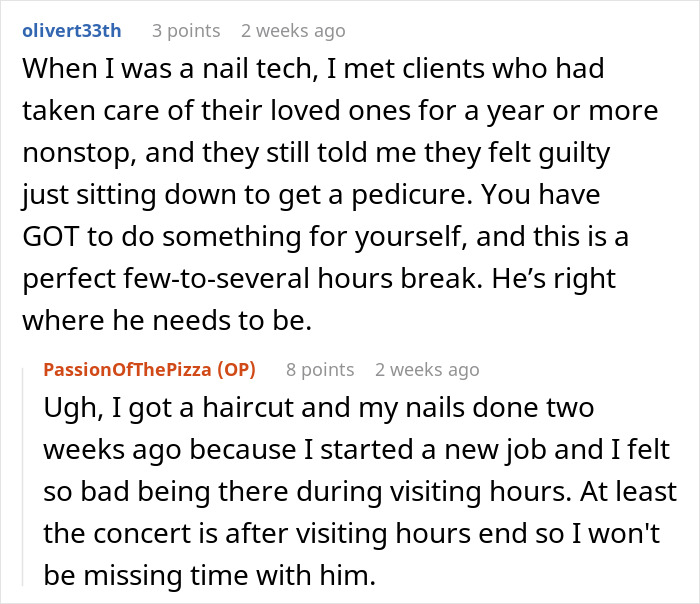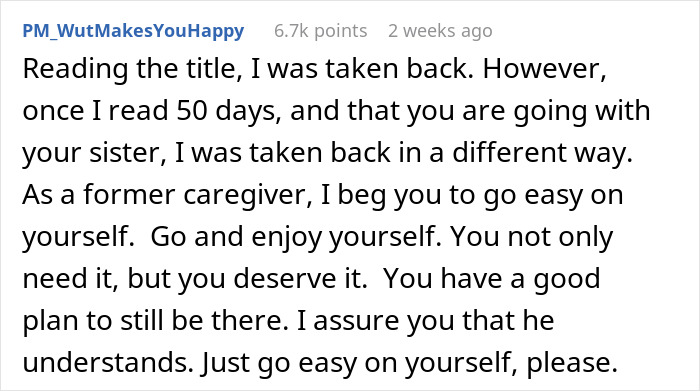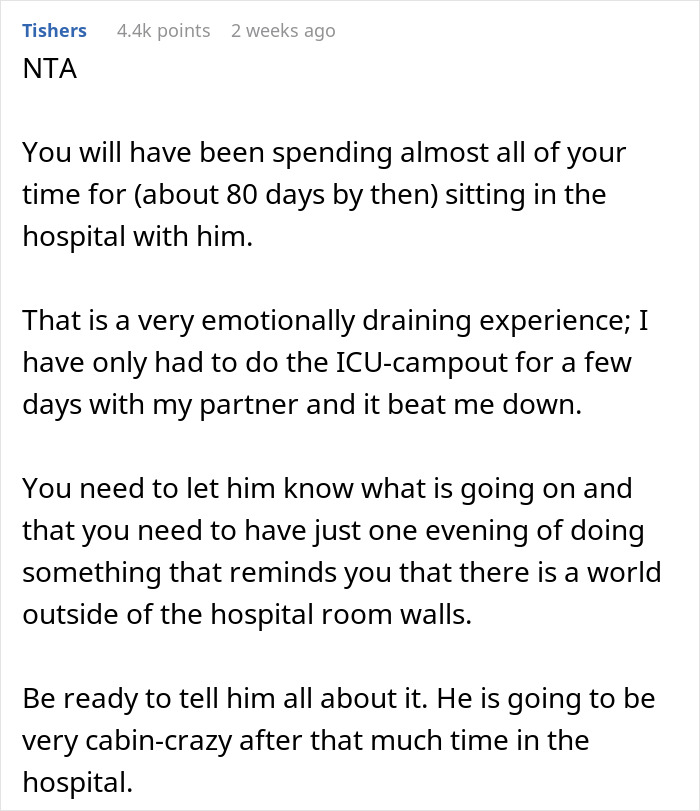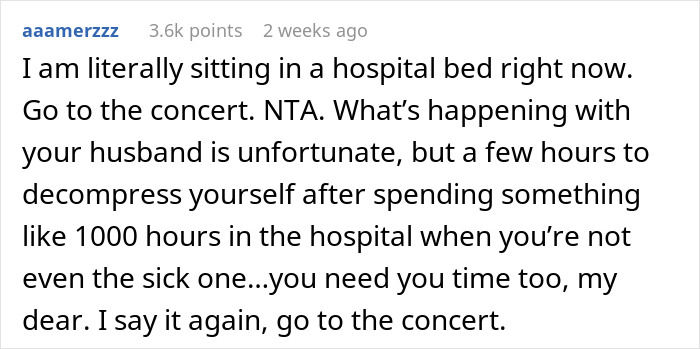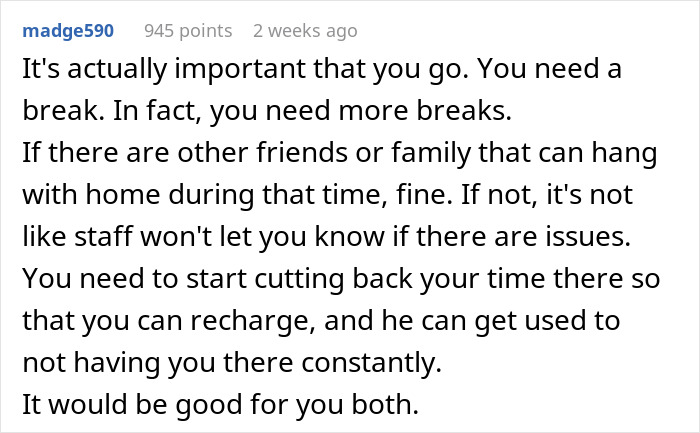When two people get married, they vow to love each other in sickness and in health. That’s why many spouses take care of their partner if they have a chronic illness or have an accident and wind up in the hospital. In fact, 22% of caregivers in the U.S. are the spouse of a chronically ill, disabled, or aged partner.
Many caregivers struggle with feelings of guilt, like this woman did. She wasn’t sure whether it would be appropriate to go to a concert for one night while her husband was still in the ICU. So, she decided to consult with the folks on the Internet.
Bored Panda got in touch with this woman, u/PassionOfThePizza, and she graciously agreed to tell us more about the situation. Read our short conversation with her below!
This woman’s husband had spent more than 50 days in the hospital when her favorite band came to town
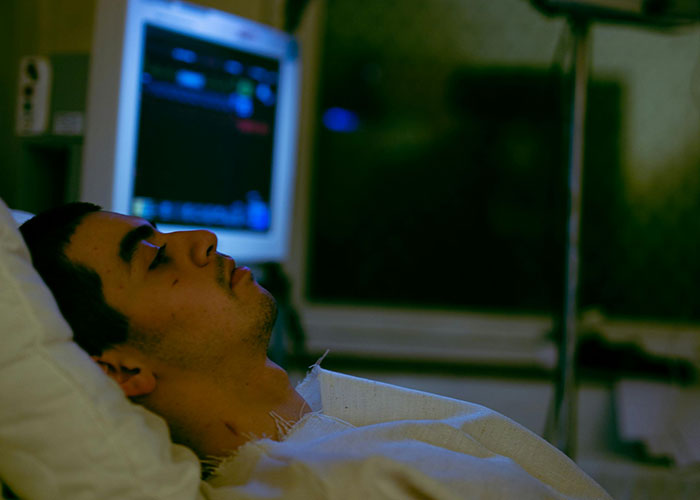
Image credits: Valentin Angel Fernandez/Pexels (not the actual photo)
But she wasn’t sure whether it would be appropriate to selfishly have fun while her partner was still in the ICU
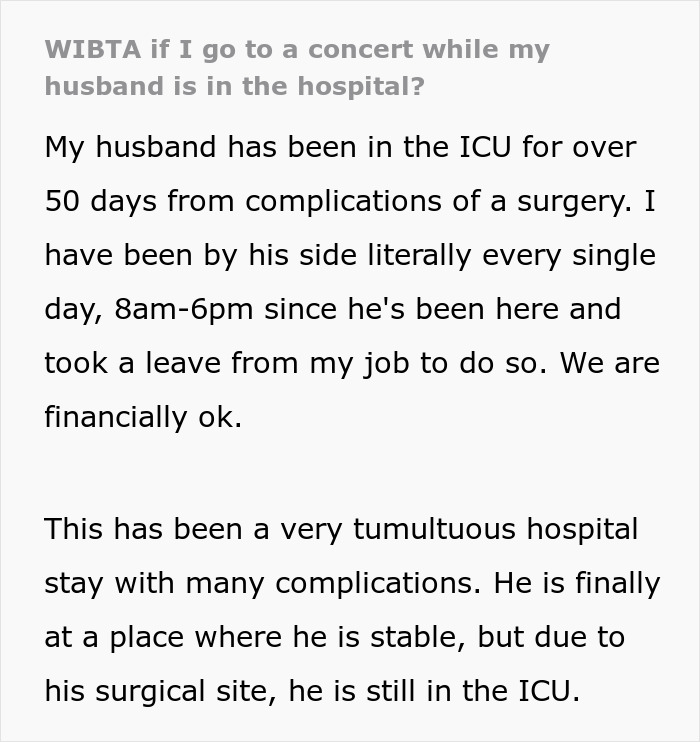


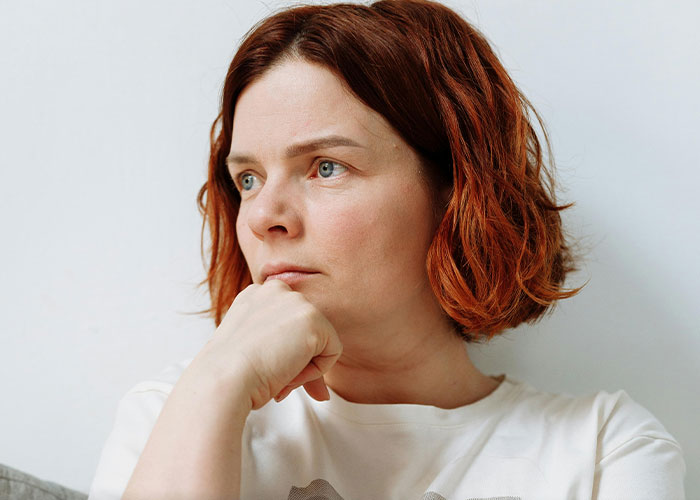
Image credits: Thirdman/Pexels (not the actual photo)



Image credits: Sebastian Ervi/Pexels (not the actual photo)

Image source: PassionOfThePizza
The author tells Bored Panda that she’s definitely going to the concert
When we reached out to u/PassionOfThePizza, the author of this story, the most pressing concern was whether or not she went to the concert. “The concert is at the end of September, but I am absolutely planning on going,” the Redditor told us via a private message. “The outpouring of support from most of the commenters on Reddit helped. And, of course, I asked my husband if he minded, and he said, ‘No!'”
u/PassionOfThePizza says that the whole experience of her husband being in the hospital has been an absolute emotional rollercoaster. “My husband went through a really rough time, and we thought we were going to lose him. Every day, I didn’t know what to expect, but he kept me going because I wanted to be there to support him and for him to feel how loved he is,” she tells us.
“Not to sound corny, but he is my best friend, and I love him very deeply. My friends, his friends, and both of our families check in daily, and knowing we’re supported by our community means everything,” the Redditor went on.
u/PassionOfThePizza happily shares that her husband has made some progress. “He is definitely more stable than he was when I posted, although [he is] still on a ventilator and not able to speak,” she tells us.
“He can mouth sentences, nod and shake his head, and use other non-verbal communication. He is always smiling when we’re together and has been staying positive. He has a very long road of recovery ahead of him, but we’re doing it together,” the Redditor shares.
Spouses who care for an ill partner begin having more health problems, too
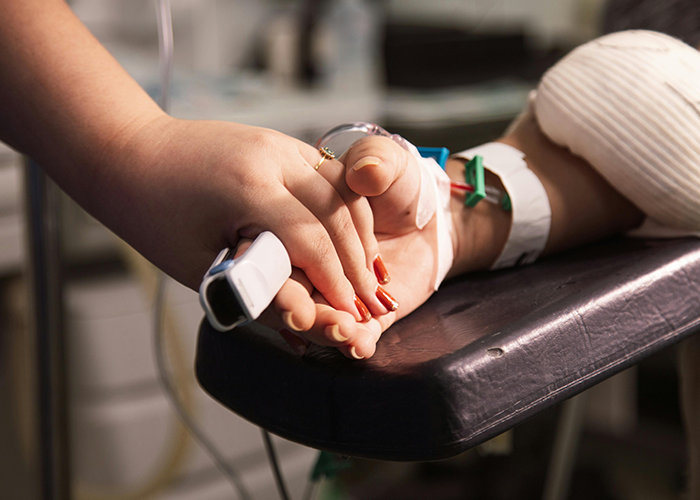
Image credits: Hannah Barata/Pexels (not the actual photo)
Having a loved one stay in a hospital is stressful for many different reasons. There’s a reason why people say that when you meet someone at the hospital, it’s probably one of the worst days of their life. Aside from births, many people associate hospitals with life-altering bad news and situations. So, it’s only natural to feel scared and stressed.
Spouses who have a sick partner experience a decrease in their health, too. In 2006, researchers studied a large group of couples to find out what effect a sick partner can have on a spouse. They found that men were 4.5% more likely to pass away after their wives had been hospitalized. Women, in turn, were almost 3% more likely to pass away.
What’s even worse is that if they lose their partner, the likelihood of accidents or passing on from a pre-existing condition increases by 21% for men and by 17% for women. Granted, the older the spouses were, the more likely they were to encounter health challenges.
However, spouses with a sick partner face many mental health challenges as well. Many report feeling stress, guilt, anxiety, sadness, and frustration. Research also shows that caregivers exhibit higher levels of depression. Those who care for people with dementia are especially vulnerable: 30-40% suffer from depression and emotional stress.
Women often also get the short end of the stick. Studies show that they fare worse than their male counterparts when it comes to life satisfaction and physical health. What’s more, caregivers have a bigger risk of heart problems. One study found that women who care for a disabled or ill spouse have a higher risk of developing cardiovascular disease.
Self-care is crucial for caregivers so they can take better care of their loved ones
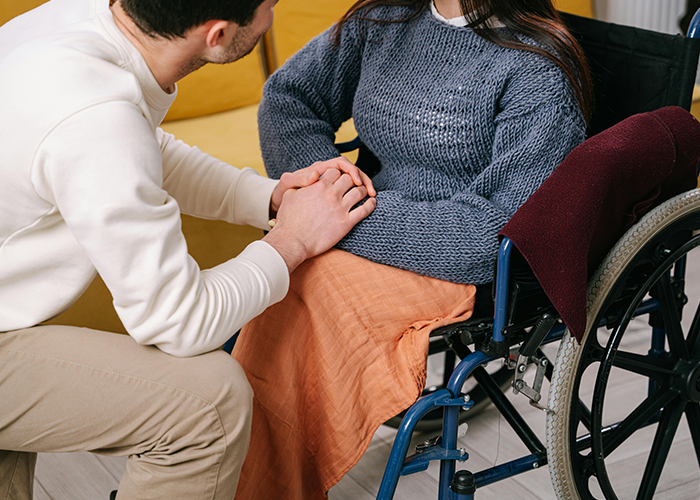
Image credits: Ivan Samkov/Pexels (not the actual photo)
Perhaps the most dangerous thing caregivers can do is not to take care of their mental health. Sadly, they tend to have lower levels of self-care. They engage in less preventive health behaviors like exercise, have worse eating habits, miss doctor appointments, or forget to refill their prescriptions. That’s why taking time for yourself, like going to a concert, is so important.
Many people tend to worry about the future and focus on whether their spouse will be okay and what arrangements they might need to make in the worst-case scenario. But, to avoid unnecessary stress, experts recommend trying to focus on the now. They also stress the importance of acknowledging all types of feelings, be it optimism one day or overwhelming anxiety the next.
Experts also stress the importance of social support. Many advise finding a support group or system that takes you out of isolation and allows you to share experiences with people who might be going through something similar. Even taking a short walk or having a cup of coffee takes you out of the routine of sitting by your partner’s side at the hospital.
While it may be hard not to feel guilt when taking time to do hobbies and activities, they can provide an escape from the stress of caring for an ill spouse. Renaissance Home Health Care reminds caregivers that self-care is not selfish. “It’s essential for maintaining your own mental health and resilience throughout this challenging time.”
Many people urged her to go, saying that she deserved this break


